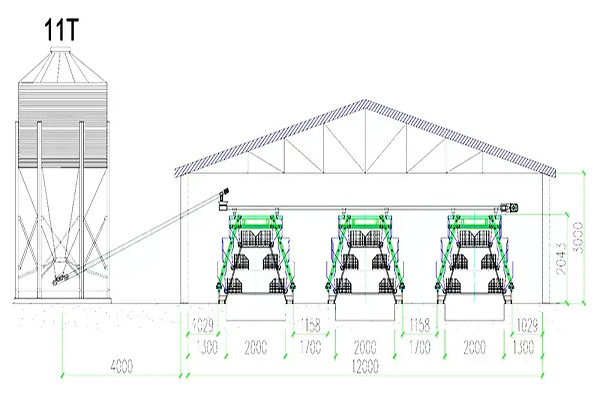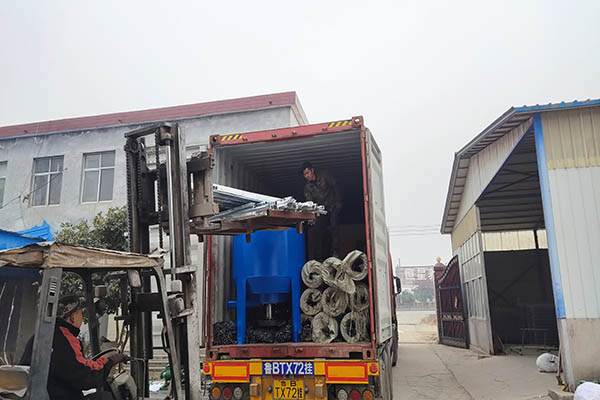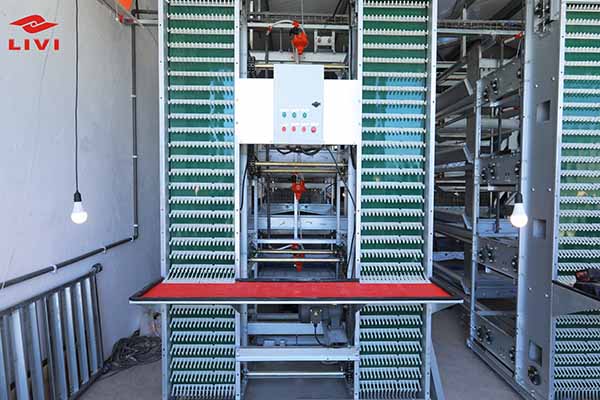How is the Energy-Saving Effect of Tanzanian Chicken Farming Equipment Achieved?
Time : 2025-06-26
The agricultural sector in Tanzania has been witnessing a transformation, especially in poultry farming. The implementation of advanced farming equipment has not only enhanced productivity but also has contributed significantly to energy conservation. This article delves into how the energy-saving effect of Tanzanian chicken farming equipment is achieved, focusing on key aspects that make these systems efficient and sustainable.

Introduction to Tanzanian Chicken Farming Equipment
In recent years, the poultry industry in Tanzania has been growing at a rapid pace. This growth is attributed to the increasing demand for poultry products in the domestic and international markets. To keep up with this demand, farmers have started investing in advanced farming equipment. These machines not only improve productivity but also ensure efficient use of energy, which is a critical factor in sustainable agriculture.
Key Factors Influencing Energy-Saving in Tanzanian Chicken Farming Equipment
1. Automated Climate Control Systems
Chicken farming involves maintaining optimal conditions for the growth and health of the birds. Automated climate control systems in Tanzanian chicken farming equipment ensure that the required temperature, humidity, and CO2 levels are maintained consistently. These systems use less energy compared to traditional methods of manual control, thus reducing energy consumption.
2. High-Efficiency Lighting Systems
Lighting plays a crucial role in chicken farming, as it affects the birds’ growth and laying cycle. Tanzanian chicken farming equipment incorporates high-efficiency lighting systems, which consume less electricity while providing sufficient light for the chickens. These systems also offer adjustable settings, allowing farmers to optimize energy use based on the specific needs of their flock.
3. Feed Grinders and Processors
Energy-saving in chicken farming extends to the processing and preparation of feed. Feed grinders and processors in Tanzanian chicken farming equipment are designed to minimize energy consumption. These machines operate efficiently, reducing the time and energy required for feed preparation. Moreover, they produce finer particles, ensuring that the chickens receive maximum nutrition with minimal waste.
4. Waste Management Systems
Efficient waste management is vital for maintaining a clean and hygienic environment in chicken farms. Tanzanian chicken farming equipment incorporates waste management systems that not only minimize the spread of diseases but also reduce energy consumption. These systems separate waste into different categories, making it easier for farmers to dispose of them in an eco-friendly manner.
The Impact of Energy-Saving Equipment on Tanzanian Chicken Farms
The use of energy-saving equipment in Tanzanian chicken farms has several benefits:

- Cost-Effectiveness: By reducing energy consumption, farmers can save on their utility bills, thereby increasing their profit margins.
- Sustainability: Energy-saving practices promote sustainable agriculture by minimizing the carbon footprint and reducing the consumption of natural resources.
- Improved Productivity: Efficient equipment ensures that chickens receive optimal conditions, leading to better growth rates and higher egg production.
Conclusion
In conclusion, the energy-saving effect of Tanzanian chicken farming equipment is achieved through the implementation of advanced technology that optimizes resource use and minimizes waste. By investing in these systems, farmers can enhance their productivity, profitability, and sustainability. As the poultry industry continues to grow in Tanzania, the adoption of energy-saving equipment will undoubtedly play a vital role in shaping the future of the sector.












